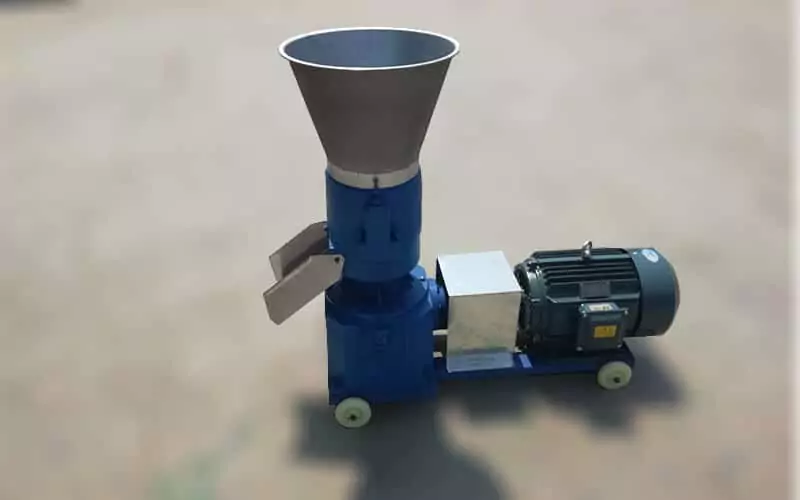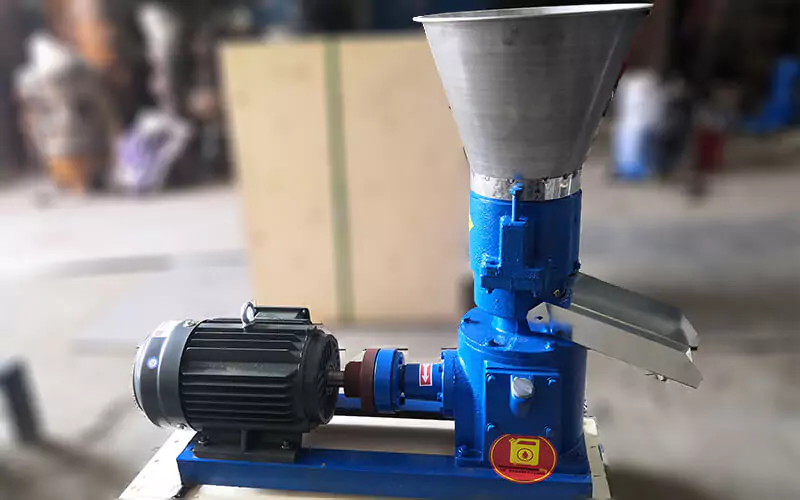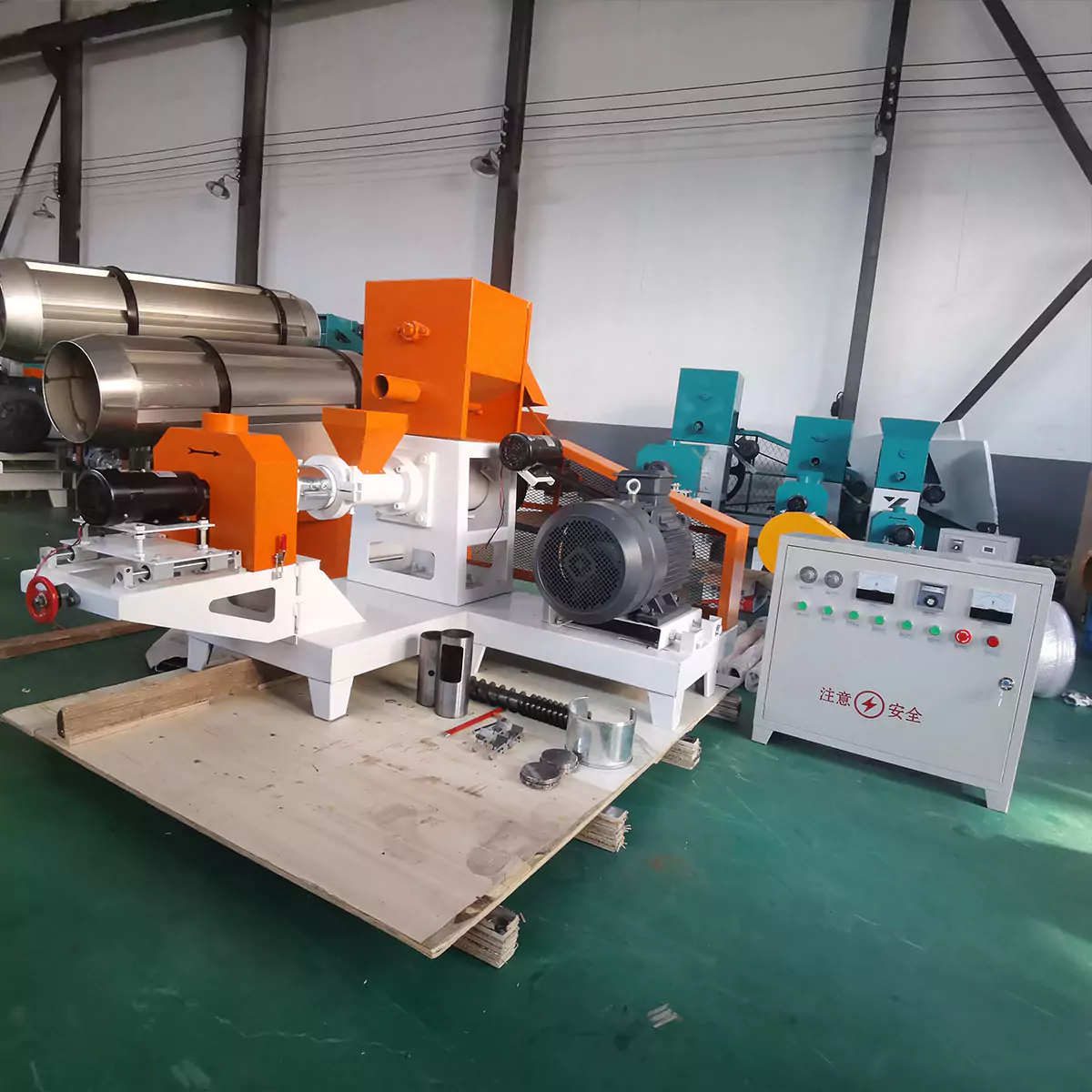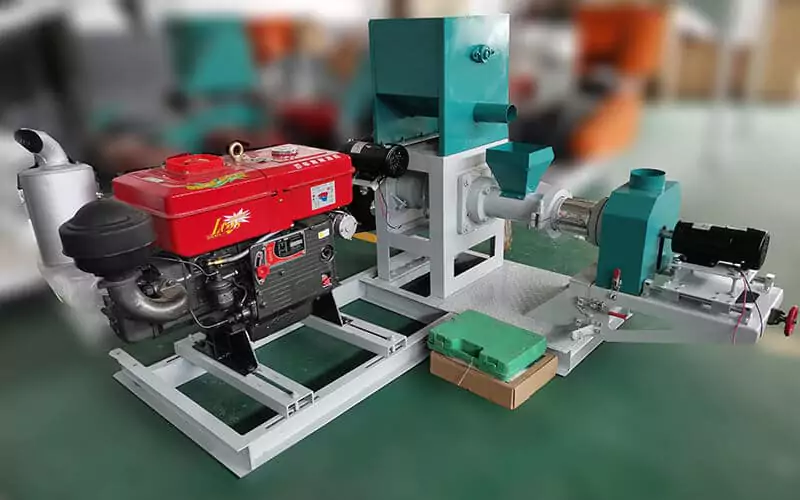A Farmer’s Guide to Feed Pellet Machines in Ethiopia
For farmers across Ethiopia, from the highlands to the Rift Valley, livestock is a cornerstone of life and business. But the high and often rising cost of quality animal feed can make it difficult to run a profitable farm. An on-farm feed pellet machine in Ethiopia offers a powerful tool. It helps Ethiopian farmers to control costs and make high-quality feed from local crops. This can lead to a more modern and self-sufficient farming operation.
This guide is written specifically for farmers and agricultural businesses in Ethiopia. It will cover the benefits of these machines. It will also look at the types of machines best suited for local conditions. We will cover where to find them in cities like Addis Ababa, what to think about before you buy, and how to consider the costs.
Why Ethiopian Farmers Should Consider a Pellet Machine
Investing in a feed pellet machine offers clear, practical advantages for farms in Ethiopia.
To Reduce High Feed Costs by Using Local Ingredients
This is the biggest benefit. You can make your own feed using local and often cheaper raw materials. These include common Ethiopian crops like maize, wheat bran, sorghum, noug seed cake (neggu), and soybean meal. This can greatly reduce your daily feed costs.
To Improve the Health & Productivity of Your Livestock
A pellet machine helps you create a consistent, balanced feed. This means better nutrition for Ethiopia’s large and important populations of cattle, sheep, goats, and poultry. Healthier animals grow faster and are more productive.
To Minimize Feed Waste
When you feed animals with loose mash or grains, they can be picky. They often scatter the food on the ground, where it is wasted. Pellets are solid, so each bite is a complete meal. This ensures more of the feed is actually eaten by your animals.
To Create a Local Business Opportunity
Once you start making high-quality feed for your own farm, you might find an opportunity to sell surplus pellets. You can supply other local farmers in your kebele or woreda with quality, affordable feed. This can create a new source of income.


What Feeds Can You Make? For Ethiopia’s Key Livestock
A good feed pellet machine in Ethiopia is versatile. You can make feed for many different animals common in Ethiopia:
- Poultry Feed: For the rapidly growing chicken farming sector in Ethiopia, including both layers for eggs and broilers for meat.
- Cattle Feed: For Ethiopia’s huge cattle population, both for dairy and meat. This can supplement traditional grazing and improve animal performance.
- Sheep & Goat Feed: To provide balanced nutrition for small ruminants. These animals are a vital part of many households.
- Fish Feed: For the emerging aquaculture (fish farming) sector in Ethiopia’s many lakes and reservoirs.
Types of Machines Best Suited for the Ethiopian Context
It is important to choose a feed pellet machine in Ethiopia that fits local conditions, especially the power supply.
- Small to Medium Flat Die Mills (Electric & Diesel): These are often the best starting point for most Ethiopian farmers. They are more affordable and simpler to operate. Diesel-powered models are especially important for rural areas where electric power can be unreliable.
- PTO-Driven Pellet Mills: “This is a great choice for farmers who already own a tractor, as it uses the tractor’s engine for power. It avoids the need for a separate engine or an electrical connection.”
- Larger Ring Die Mills: These are for large-scale commercial feed businesses. You will likely find these located in or near industrial zones around major cities like Addis Ababa or Adama.
Finding Suppliers in Ethiopia: Where to Start Your Search
Finding a good, reliable supplier is a key step.
- Start Your Search in Addis Ababa. The capital city is the primary hub for importing and distributing agricultural machinery in Ethiopia. It is best to look for established equipment dealers and importers here.
- Ask Agricultural Cooperatives and Unions. These local farmer organizations often have good information on reliable equipment suppliers. They may even be able to help with purchasing.
- Visit Local Markets and Inquire. You can search in larger local markets. You can also ask agricultural supply stores in towns like Adama, Bahir Dar, or Mekelle for recommendations.
- Government Agricultural Offices & Development Projects. These offices may have lists of recommended suppliers. They might also be involved in projects that use such machinery, offering valuable information.
A Practical Checklist for Buying a Machine in Ethiopia
Think carefully before you buy a machine. Ask yourself these important questions:
What Livestock Will You Be Feeding?
This is important because it determines the size of the pellets you need to make.
How Large is Your Operation?
This will determine the capacity you need. This is measured in kilograms per hour.
What is Your Power Source Reality?
Is the grid electricity in your area stable and reliable? Or is a diesel or PTO-driven machine a much safer bet for you?
Can the Machine Handle Your Local Ingredients?
For example, can it process tough fibers from crop leftovers? Can it handle oily seed cakes like noug cake?
Look for Simple, Strong Machines
“Getting spare parts or an expert technician to a remote farm can be challenging. A durable machine with a simple, mechanical design that is easier to maintain and repair yourself is often the wisest long-term choice.”
Ask About Spare Parts Availability in Addis Ababa
“Before you agree to buy, ask a very important question: ‘If I need a new die or a new roller, can I get it from you in Addis Ababa quickly, or does it need to be imported from another country?’ The answer will tell you a lot about future problems.”
Prices of Feed Pellet Machines in Ethiopia
Prices depend on size, type, and features:
| Machine Type | Price Range(USD) |
|---|---|
| Animal Feed Processing Machine | 1,500–10,000 |
| Poultry Feed Pellet Machine | 1,200–8,000 |
| Floating Fish Feed Machine | 2,000–12,000 |
| Fish Feed Extruder | 3,000–15,000 |
What Affects the Price?
Four factors affect costs:
1. Size
Big feed pellet machines cost more but make feed faster. Small ones are good for new farmers.
2. Features
Machines with buttons and screens cost extra. Simple ones work fine too.
3. Quality
Strong metal machines last longer. Plastic breaks faster but costs less.
4. Brand
Popular brands cost more. Local shops fix Ethiopian machines quicker.


Frequently Asked Questions
What are some common, low-cost feed ingredients found in Ethiopia?
A: This often depends on your specific region. However, common, cost-effective ingredients are often by-products from local agriculture. These can include wheat bran, maize (corn) by-products, and various types of oilseed cakes, such as the widely available noug seed cake.
Is a diesel or electric machine better for rural Ethiopia?
A: Due to potential issues with electricity reliability in many rural areas, a diesel engine or a tractor PTO-driven machine often provides more dependable operation. If you are located in a city or an area with a very stable power grid, an electric machine can be cheaper to run.
How can I be sure of the quality when buying a machine in Ethiopia?
A: It’s best to try and buy from established dealers, preferably in Addis Ababa. They should be able to show you the machine working and offer some kind of warranty or support. If possible, ask them for references from other farmers who have bought the same or a similar machine. Seeing the build quality of the machine in person is always a good idea.
Can these machines make pellets from teff straw?
A: Yes, many biomass-capable pellet machines can process teff straw. However, pelleting high-fiber materials like teff straw can be more difficult than pelleting grains. It requires careful preparation of the straw (chopping and moisture control) and a robust machine, often with a specific type of die.
Do I need a very big machine for a small number of animals?
A: No, you do not. There are many small-scale flat die pellet mills available on the market. These are designed specifically for smallholder farmers. They are much more affordable than the large, industrial machines.

